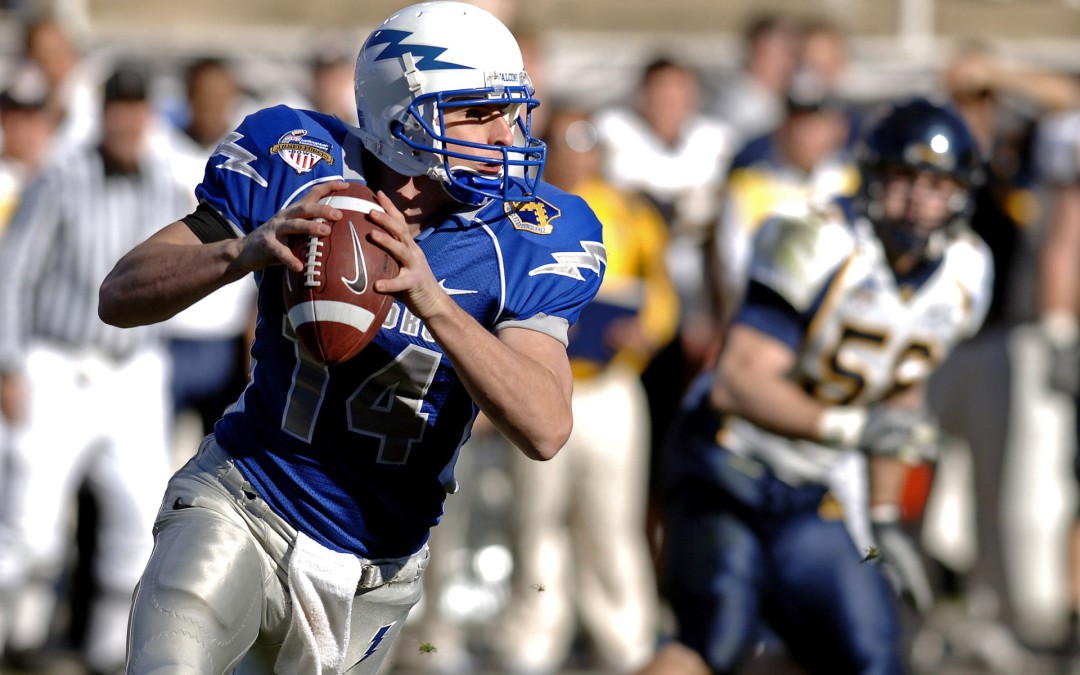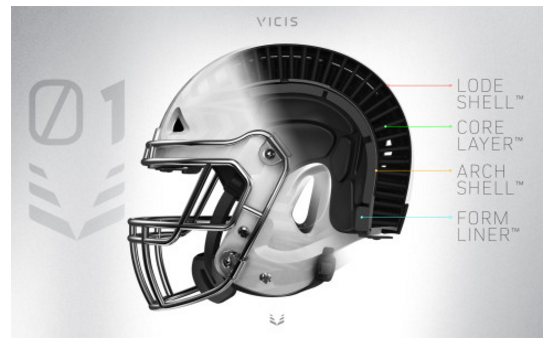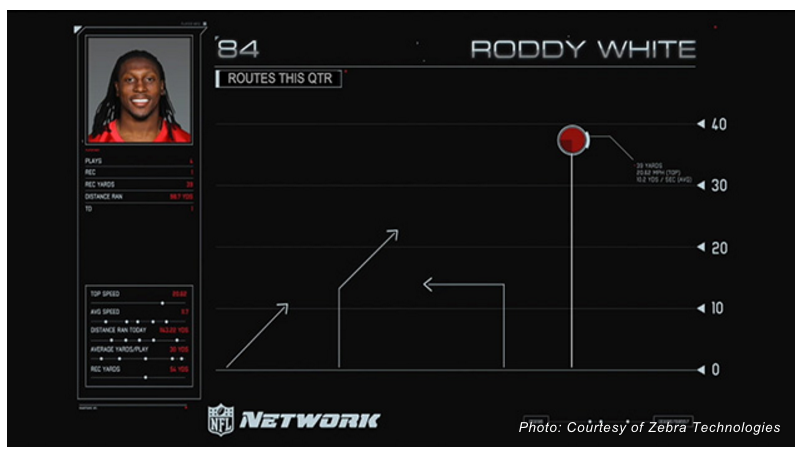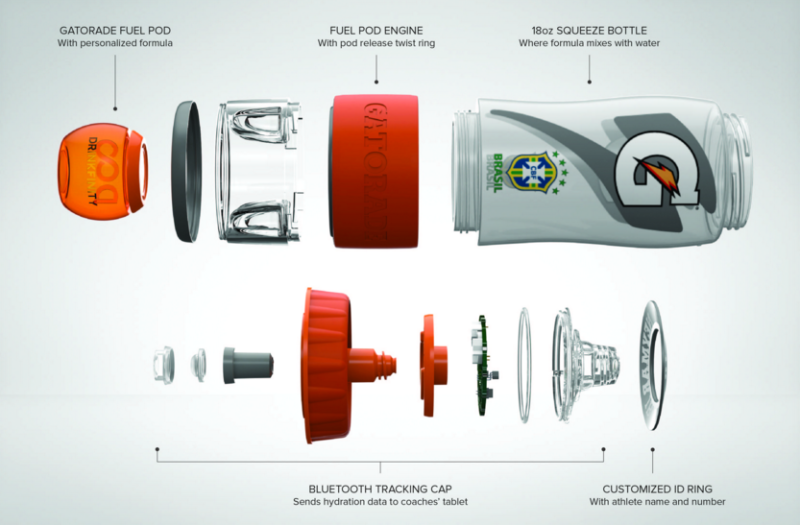1. Zero1 Flexible Helmet
The high impact collisions that happen on every football play are often the equivalent, on the players skulls, of being hit in the head by a bowling ball dropped from a height of eight feet. When you think of it this way, it’s no surprise that 1 in 3 football players suffers from brain trauma during his career. What if there was a smarter helmet that could drastically reduce the amount of collisions that translate into concussions?
That’s exactly the goal of the Zero1 flexible helmet from Seattle company Vicis. Taking a cue from how automakers approach collision impact technology, the helmet features a multilayered approach meant to provide greater cushion upon impact than today’s helmets, which are mostly just plastic padded shells.
The Zero1 rethinks this approach with a middle layer comprised of hundreds of bendable polymer columns that act like shock absorbers. These columns transform from a straight line to a C shape and back again when hit, allowing them to slow the acceleration of force before it reaches the player’s head. Vicis’ CEO Dave Marker explained it to Wired like this: “Newton’s second law,” he says. “Force equals mass times acceleration. The mass of a player’s not going to change, but if you can slow acceleration—the “a” in the equation—you’re reducing force.”
Vicis currently doesn’t have any contracts, but it has received over $10 million in funding, and hopes to sell its helmets to NFL teams by next season. Aiming to reduce collision impact up to 50%, hopefully we’ll see the NFL embrace this huge helmet innovation immediately.
2. Zebra RFID Tracking Tech
While football is the most watched sport in America, its use of sophisticated data analysis has notably lagged behind many other sports. From the huge size of the field to the intense physical contact of so many players at one time, figuring out the right way to obtain this data has been a huge hurdle. Better tracking could lead to a greater understanding of the game, and in turn, to smarter training strategies for winning teams.
Luckily a successful tracking system finally seems to be emerging for the NFL. An RFID tracking system from Zebra Technologies was tested in 18 stadiums last season. This season the NFL will use Zebra on all 32 teams.
So how does Zebra work? Two trackers embedded in the players’ shoulder pads have radio frequency identification sensors (RFID) that can track the speed, acceleration and position of individual players—up to 25 times a second! This new granular level of tracking will allow teams to better assess player performance based on actual play speed instead of old metrics like 40 yard sprints and height jumps.
Once teams figure out how best to analyze this new wave of data, we can expect to see coaches making even more tailored, customized training plans for individual players based on their strengths and weaknesses. This technology will ultimately enable NFL players to play smarter, not harder.
3. Gatorade Smart Cap Hydration
Gatorade has been working on developing a “smart cap” bottle capable of tracking individual players’ hydration levels, sweat and sodium loss, and how much he needs to drink for optimal performance. Based on these individual needs, Gatorade will develop 12 different “fuel pods” that can be added to the bottle to optimize speedy recovery with specific levels of sodium and electrolyte replenishment.
Gatorade is currently testing its new technology on various sports teams, including the Kansas City Chiefs. While they’re still ironing out the wrinkles, we can expect to see this hydration customization arriving on a larger scale in the near future. It only makes sense in a data driven world for that level of precision to extend to what and how athletes are drinking.



